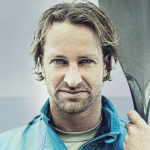Author: Sterling Hawkins
Hunting Discomfort Landed TED is critical to preparing a successful TED talk, even more so after you’re accepted. And with how exclusive TED talks are to give, you want to do everything in your power to give a meaningful talk, right? We’ve all heard countless stories about how a TED talk has transformed a company, […]
Hunting Discomfort Landed TED is critical to preparing a successful TED talk, even more so after you’re accepted. And with how exclusive TED talks are to give, you want to do everything in your power to give a meaningful talk, right? We’ve all heard countless stories about how a TED talk has transformed a company, a career and even people’s lives so why not knock it out of the park?
This blog series isn’t really about how to get a TED talk. It’s about how to hunt discomfort to achieve results in anything, delivering a great TED talk is just an example. Discomfort is the experience of pain (and that’s… unpleasant), but on the other side of that pain are breakthrough results. If you missed part one of this blog it’s all about how to hunt discomfort to be accepted for a TED talk [READ HERE]. This blog focuses on how to embrace discomfort to prepare for a successful talk (or any talk for that matter).
My talk was delivered in early 2019, appropriately titled Discomfort is Necessary for Innovation (and breakthrough results) [WATCH HERE] and after an intensive 90 days of preparation following acceptance, I delivered the talk to a standing ovation, and as of today, my talk has just over 56,000 views. Here’s the discomfort you need to hunt to be on a similar trajectory.
Hunting the discomfort of continued effort
Be careful what you ask for, because here it is, and it wasn’t what I thought. After nearly two years I finally got my acceptance into the TED program, how hard can it be from here? It must be a slam dunk, I thought. I speak and run workshops around the world on innovation, I clearly know what I’m talking about, right? Not exactly. After a two year journey, hearing I was accepted was a rush of victory… that was immediately crushed by the Executive Director telling me: “It’s still a no, until we find the yes”. What he was saying was that until the talk was completed and the idea fully developed, there’s no guarantee I’d be on that TED stage.
There’s a lesson for everything in that. I’m sure there’s some cliché about how it’s not done until it’s done, and that’s true. When we think we know how we’re going to do something, we can easily (and sometimes unknowingly) take our foot off the accelerator. We give in to the status quo (and end up getting about the same results we’ve already had). To achieve your best work, it takes continued effort through to the very end.
Hunting the discomfort of surrendering to the process
Once I digested the idea that I still had to prove my idea was worth sharing before I was given a spot on the stage, it came time to get down to talking about what that idea was.
I’m thinking at the time, I have hours of content, rolling off a 45 minute presentation is easy — to do a TED talk in 10 minutes, or so, can’t take all that much effort, right?. And again I was way off. The Executive Director states (in no uncertain terms): “Throw out everything you have, whatever you thought you were going to talk about, drop it right now.” What?? I’m starting to wonder why I was accepted in the first place.
One of the rules with this TED talk was that there had to be one call every week to share progress. And call after call I would share idea after idea that was inevitably met with feedback like, “What does that mean?” “Why is that important?” And “That’s a business message, how does it apply to our audience?”
If he didn’t like what I was talking about, why was I even here? My ideas, my messaging, my perspective were all being torn down. Weeks into the process I was frustrated, I was tired, I was annoyed and I still didn’t have any idea what I was going to say.
Have you ever been at the point where you just can’t seem to get something right? That’s where I was. And ready to give up. Why did I even want to do this to begin with? Maybe I didn’t need a TED talk, I certainly didn’t need this hard work. It was like being invited to a party, but not being given a seat at the table. It was this agonizing uncertainty and self-doubt that started to permeate all of my thinking.
The Executive Director did not let up. In moments of clear defeat on our calls he would end it just telling me to trust the process. We’ve all probably heard that before. What that means though is continuing to move through the process even when you don’t want to, when you want to give up and when it seems like it’s harder than you ever could have imagined.
A funny thing happens when you trust the process and embrace the discomfort that goes with it. Eventually… disparate ideas that would probably never have the chance to come together under ordinary circumstances, do. It’s exactly because you’re in an uncomfortable situation that your subconscious kicks into overdrive and creativity, breakthrough ideas and new actions suddenly arise. It creates the context for a moment of clarity to break through the limits of your conscious mind (the breakdown) for something entirely new.
Ironically, exactly because I trusted the process, I arrived at the conclusion that discomfort is necessary for innovation (or any significant positive gain), not as an intellectual exercise, but moving through the spaces of it myself. And watching myself move through those spaces I understood a new idea at a level deeper than comprehension alone. And like magic, all the ideas, workshops, talks and everything else I had done suddenly came into view in an entirely new way. I had the core message of my talk and I was forever changed as a result of it.
Even in the darkest of times and hardest of circumstances, trust the process you’re moving through. Enjoy that process, even the pain. When we embrace discomfort in that way breakout ideas and the will to achieve them will inevitably arise.
Hunting the discomfort of feedback & unlearning
This easily turned into one of the hardest presentations I’ve ever had to create. I’ve put presentations together to sell my first company, to close 6 and 7 figure sales deals, and of course I’m paid to speak on stages around the world — none of that came close to how hard this was.
What I started to realize is that if I simply shortened my talk from 45 minutes that I was doing on business stages to 10 minutes for TED, it would have fallen flat. The TED coaching team shared their knowledge of how to build a good talk, and it became my job to unlearn what had worked in the past to relearn what would work in this situation.
I see a couple takeaways in that. New environments, new countries, new circumstances, new customers… means that what has worked in the past might not continue to be the best approach. Embracing the discomfort to set aside what you already think you know to discover what you might not know yet lets you create breakthrough results when everyone else is resting on the status quo.
The other key learning here is that experts in certain fields are experts for a reason: they know more than you do. The earlier you can take the “feedback” of what’s not working, the easier things will be down the line.
Even once something is within reach, for organizations or even in our personal lives, we need to continue hunting the discomfort. It’s those that continue to seek that kind of growth that can actually achieve breakthrough results. The four kinds of discomfort to look for once you’re on your way are:
Keep engaged through the very end. Don’t step back, consider something complete or try just hard enough, unless you want mediocre results
When you already know something, especially when any variables have changed, look for what you don’t know, look for how it can be better and look for a new perspective beyond what you already have.
Find someone who is an expert in the area you’re working in to tell you what you don’t know. The earlier you find it and the faster you take some of their feedback (however painful it may be), the easier things will be in the end.
Process and structure will set you free. Build a plan and surrender to it even if you don’t feel like it. It’s that process that you can rely on through any self-doubt that will inevitably come into play. Your future self will thank you for sticking to plan when you have the results, trust me.
LIVE EVENT
If you followed us last week, you already know that we have a very special Facebook live coming just for the #NoMatterWhat Community (which you can join here) with the Executive Director of TEDx Chula Vista, Antwon Lincoln.
Antwon is the guy that rejected me, finally accepted me and coached me every step of the way. You’ll hear it all from his perspective and feel free to send me questions in advance or even live as this is really about getting you the information you need to find your own discomfort and breakthrough results. We’ll be on October 29 at 1pm PT.
Can’t wait to see you there!
Contact Us at WeSpeak Global and follow us on Twitter
Author Profile
No results available
ResetThe articles, video and images embedded on these pages are from various speakers and talent.
These remain the property of its owner and are not affiliated with or endorsed by WeSpeak Global.

Push through the bad to get to good / Shifting spaces / Challenges of the Pacific / Don’t get run over / Injuries / Warnings / Water struggles & just Figuring it out then Man overboard-Captain! Over the last 12 days, I’ve traveled just over 400 Nautical miles SW. I’ve passed by the US […]

The 4 Types Of People You Need On Your Leadership Team can be related to this powerful book, Think Like A Monk, I believe Jay Shetty gives us a reason why we so often feel let down by those we look to as we grow as leaders. He writes, “We tend to expect every person to […]

Building brands takes time. Be patient. Branding is an overused, misused and even abused management term. People think brand is a quick design fix for many management ills. It’s not. Building a brand takes time to root and enact change. The reason being, brands can influence our emotion and behaviour and that doesn’t happen overnight. […]

Eddie Botes, Leadership and Culture Speaker wrote this article, Critical Thinking for the Adaptive Leader. VUCA is an acronym that is now well established as a description of the business world that we currently operate in. In a Volatile, Uncertain, Complex, and Ambiguous world, there is no going back to the familiar and predictable world before the global financial […]

Managing people for the first time can be an incredibly daunting experience and Transitioning to a People manager. If you have been promoted from within, the very people that were your peers before, your coffee buddy, your friend whom you let off some steam and complained about things with etc, is now the person that […]

Take charge of your digital habits and screen time and the added pressure of being available 24/7 can make you feel trapped and unsure of where to start. Do you reach for your phone without thinking about it? Do you interrupt a conversation to click on Instagram or WhatsApp the moment you see a notification […]

A lack to Build Your Resilience is a massive factor that holds you back from achieving the success you desire. Think of the last time you gave up on a diet, a fitness regime, or a really important prospecting plan in your business. Unfortunately, when you don’t see immediate results, or when the going gets […]

Yet Mr Gates’ programme itself is not inherently evil and why you can do better without slides. Ouch!’Death by PowerPoint.’ That’s the commonly used term. Jim Nelson, a man who served as a translator between the American and Russian troops in Bosnia, tells a story about the Russians watching with bemused fascination as their unlikely […]
No results available
ResetOur Mission
© All rights reserved 2024. Created using VOXEL THEME
1902 Wright Place, Carlsbad, CA, 92008